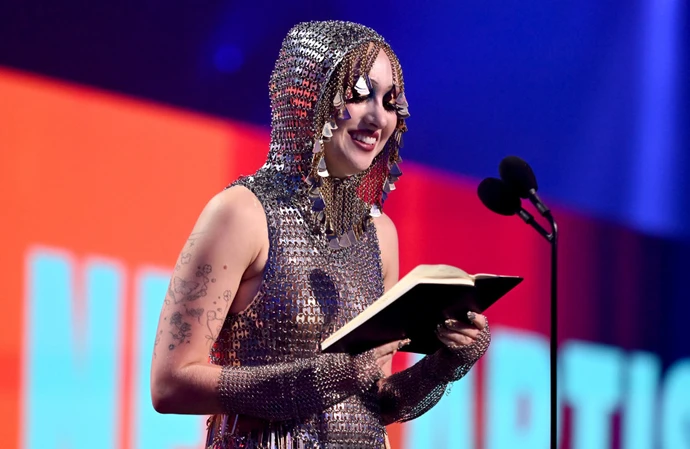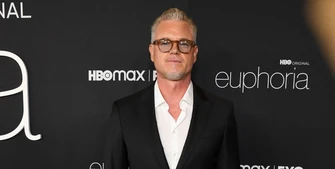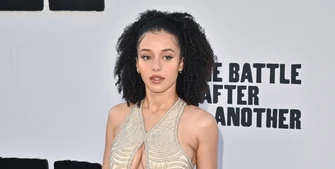Chappell Roan and the price of speaking out: Why women in the music industry are vilified for defending themselves
Chappell Roan is one of the world's fastest rising pop stars and she won't be silenced.

At 26, Chappell Roan is one of the fastest rising pop stars in the world. She is earning acclaim as quickly as she is earning fans thanks to the eclectic hits on her debut album 'The Rise and Fall of a Midwest Princess'.
But with a meteoric rise comes an equally fast pivot in lifestyle - one that thrusts her into the harsh spotlight of celebrity culture, where boundaries are tested daily. Roan, however, has quickly shown she won’t be crossing those lines quietly. In an industry that often vilifies women for defending themselves, her defiance has sparked debate, revealing a systemic issue that women artists continue to face: the consequences of saying “no".
Roan’s journey in the music industry didn’t start overnight. Signed to Atlantic Records in 2015, she spent five years navigating the uncertain waters of an industry known for its brutal treatment of new artists, only to be dropped in 2020. Her “overnight” success with her debut album was anything but - it was the result of a decade of struggle, perseverance, and artistic growth. But as her star began to rise, so too did the scrutiny and invasions of her privacy.
Recently, Roan has been vocal about her experiences with inappropriate fan behaviour. In a TikTok video that quickly went viral, she called out fans who had crossed the line, stalking her and her family members. “This isn’t love or support - it’s harassment,” she declared to her millions of followers, making clear that fame does not mean forfeiting one’s right to privacy. Not content with just one platform, she doubled down on Instagram, where she asserted her boundaries in a no-nonsense post that left no room for misinterpretation. At this week's MTV VMAs, when photographers yelled at her to get her attention, she wouldn't just stand and pose and stand for it. “I yell back,” she unapologetically explained in a VMAs red carpet interview, embodying the spirit of a woman who refuses to be treated as anything less than human.
But in an industry that has long rewarded submissive compliance and punished resistance, Roan’s assertiveness has sparked online debates. Detractors claim she’s not cut out to be a pop star - yet such criticisms are nothing new. Roan’s experience is part of a much larger pattern where women in the entertainment industry are demonized when they dare to defend themselves.
Consider Megan Fox. Early in her career, Fox was branded “difficult” and “crazy” for her outspoken criticism of sexism in Hollywood, particularly regarding her treatment on the set of ‘Transformers’ and her contentious relationship with director Michael Bay. Fox was effectively blacklisted from major projects for daring to challenge the status quo, only to be vindicated years later as the cultural climate shifted to recognize the toxicity she was highlighting.
Then there’s Britney Spears, whose public breakdown in the mid-2000s was mercilessly exploited, leading to a 13-year conservatorship that stripped her of her autonomy. Labelled “crazy” by a media machine hungry for scandal, Spears was silenced, her voice dismissed until the “Free Britney” movement shed light on her plight, forcing a re-evaluation of her story and the abuse she endured.
Mariah Carey, too, was often tagged as a “diva” or “difficult” for years because she insisted on controlling her public image and career. Yet as she publicly shared her struggles with bipolar disorder and the abuse she faced in her personal life, the narrative began to shift, revealing a woman who was simply trying to protect her mental health and artistic vision in a cutthroat industry.
What all these women share is not just fame or influence, but a narrative that was initially weaponized against them for speaking out. They were deemed “crazy,” “divas,” or “difficult” because they refused to submit to an industry that thrives on control. Like Fox, Spears, and Carey, Roan has become a new face in this ongoing saga - a reminder that women who defend themselves are often villainized to keep them in line.
The entertainment industry remains one where boundaries are constantly tested, especially for women. For those who dare to push back, the consequences can be brutal - blacklisting, public humiliation, or a complete career derailment. Yet Roan’s rapid rise to stardom, coupled with her refusal to remain silent, suggests a shift in how these power dynamics are being challenged.
Roan’s career, marked by her defiance, is a powerful statement: she is unafraid to stand up for herself, to call out the unacceptable, and to protect her space. She is part of a new generation of female artists who are unwilling to play by the old rules, recognizing that the very traits that have been used to vilify them are also the ones that give them strength and authenticity.
As fans and critics alike grapple with Roan’s unfiltered stance, one thing becomes clear: her rise to fame is more than just about music. It’s about reclaiming autonomy in an industry that has long sought to deny it. For women like Chappell Roan, Megan Fox, Britney Spears and Mariah Carey, defending themselves has never been a weakness. Rather, it is a form of resistance, a defiance against an industry that has tried- time and again, to silence them.
In the end, Roan’s message is simple: she will not be quiet. And perhaps, neither should any of us.
By Tylar Valentine







